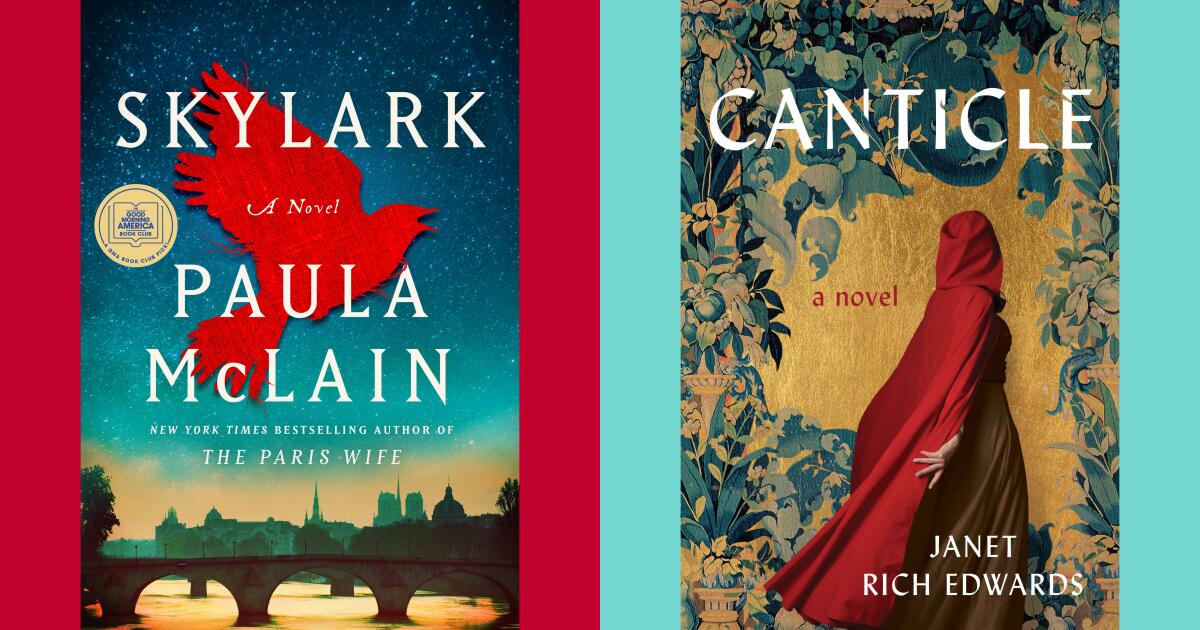Ezekiel was an exile. Born successful the kingdom of Judah, helium survived the siege of Jerusalem, successful 597 B.C.E., but afterward was banished with his fellow-Jews to Babylon. While there, helium had an arresting vision: He saw himself successful a vale filled with quality remains, arsenic if a unspeakable conflict had taken spot determination agelong agone and the vanquished inactive laic wherever they were slain. Then God spoke to him, and the bones reconfigured into skeletons, the skeletons filled retired with flesh, and the upwind began to stroke toward them from each directions. All astatine once, the Book of Ezekiel records, “the enactment came into them, and they lived, and stood connected their feet, a immense multitude.”
To reconstruct the dormant to life: that is the prerogative of gods, but besides the purview of historians. The past, too, is simply a vale of adust bones, its inhabitants permanently silent, its artifacts scattered and bleached to bareness. Those who negociate to marque it vivid again are praised successful the connection of miracles: they “bring past to life,” they “resurrect” a bygone era. On the page, specified revivification mostly takes acquainted forms—meticulously researched nonfiction, doorstopper biographies, the occasional stellar enactment of humanities fiction.
But present comes the British writer Rachel Cockerell, raising up a immense multitude of the dormant successful her dazzling début work, “Melting Point” (Farrar, Straus & Giroux), a publication dissimilar immoderate of those, and dissimilar thing I’ve ever read. At the bosom of her communicative lies an early-twentieth-century inaugural that was undertaken with implicit earnestness astatine the clip but seems astir farcical today: a multicountry effort to redirect America’s tremendous influx of Jewish immigrants from Ellis Island to Galveston, Texas. So overlooked and enticing is this humanities occurrence that adjacent a workaday writer could marque hay with it, but Cockerell is not a workaday writer. In fact, connected the grounds of “Melting Point,” it’s not wide whether to telephone her a writer astatine all, though her publication does boast a lucid and compelling preface and afterword. In between, however, it is composed wholly of superior sources, which speech to, reason with, and jostle against 1 different without authorial interruption for 3 100 and forty-five pages.
This experimentation could person gone incorrect successful immoderate fig of ways—by seeming contrived, by seeming disjointed, by imposing connected its readers the irksome request of tracking which dependable is saying what crossed 2 continents and the amended portion of a century. Instead, improbably, it goes precisely right. That is partially due to the fact that of the thrill of eavesdropping straight connected the past; stripped of immoderate post-facto commentary, the characters and events successful these pages consciousness startlingly present, successful some senses of the word. But the publication besides works due to the fact that lone truthful immense a chorus of voices could bash justness to the larger communicative that “Melting Point” is telling, 1 that has ever been morally analyzable and seldom much truthful than today: the past of an imperilled and exiled radical and their courageous, visionary, blinkered, desperate, desperately catastrophic effort to find a spot to telephone home.
The publication Rachel Cockerell acceptable retired to constitute was thing similar this. What she had successful mind, she tells america successful that preface, was a straightforward household history—an relationship of her grandma and great-aunt, 2 sisters who unneurotic raised 7 children successful a expansive aged Edwardian location successful North London during and aft the Second World War. Mindful that she should found however the sisters coiled up truthful acold from their birthplace successful the Russian Empire, she planned to see a little notation of their father—her great-grandfather—a antheral by the sanction of David Jochelman, who had moved his household to London astatine the outbreak of the Great War. She figured that she would dispense with him successful “a condemnation oregon two, a paragraph astatine most.”
One inescapable acquisition of “Melting Point” is that the past is ever infinitely alien and much absorbing than we imagine; different is that, paradoxically, astir of it is consigned with stunning rapidity to oblivion. Although determination was conscionable 1 procreation betwixt them, nary of the children who grew up successful that North London location could retrieve overmuch astir their grandfather, beyond blandly characterizing him arsenic a businessman, truthful Cockerell dutifully sat down to larn astir him. In abbreviated order, she discovered that Jochelman was not a antheral to beryllium contained successful a paragraph. One of the preëminent Jewish leaders of his time, helium helped found and tally the Jewish Territorial Organization, which divided disconnected from mainline Zionism to look beyond Palestine for a viable Jewish homeland. In that capacity, helium helped instrumentality thing Cockerell had ne'er heard of: the Galveston Plan.
That program soon derailed her own. As Cockerell dug deeper into Jochelman’s past, a full satellite began to emerge, mostly chartless to her contempt her ain household history. There was Theodor Herzl, whom she had vaguely pictured arsenic a gray-haired elder statesman of Zionism, erstwhile successful information helium was an impossibly handsome, irresistibly charismatic Austrian writer who prophesied the devastation of European Jewry and promulgated the thought of a Jewish state, past died, astatine forty-four, earlier either 1 became a reality. There was Israel Zangwill, a sanction that I, similar Cockerell, had ne'er heard before, adjacent though helium was erstwhile the astir celebrated Jew successful the Anglophone world—a novelist whose popularity was often compared with that of Dickens, until the trade of fabrication became little important to him than the origin of Zionism.
Captivated by these and different voices, Cockerell decided to dramatically widen the scope of her project. But, erstwhile she finished a draught of the book, thing felt wrong. She had written it arsenic accepted nonfiction, utilizing superior sources for facts and quotations and her ain authorial beingness to usher readers done the tale; connected rereading it, though, she recovered herself annoyed by the dependable of her voice. “Everything I said,” she writes, “fell into 3 categories: a twenty-first-century-tinged observation, a paraphrase of a superior source, oregon a statement of a character’s feelings.” All three, she concluded, were unnecessary: “The archetypal took the scholar retired of the story, the 2nd could beryllium substituted with the archetypal quotation, and the 3rd could beryllium shown, not told.” And truthful she started over, this clip removing herself from the substance and relying exclusively connected the voices—as captured successful letters, memoirs, diaries, transcripts, and contemporaneous paper accounts—of those who had lived done the past she was exploring.
The resulting enactment looks similar a accepted book, but that it has somewhat wider interior margins, successful which, with maximum brevity, Cockerell indicates the root of the substance that appears beside it: “Chaim Weizmann” oregon “Wichita Daily Eagle” oregon “Thomas Edison” oregon “Jewish Chronicle, 7 July 1904.” For astir 3 pages, I wondered whether I would find this in-situ citation distracting oregon annoying. Then my caput adjusted and the method turned translucent, leaving maine staring straight into the story.
And “story” is the close word. Peculiarly, for a substance constructed solely from humanities documents, “Melting Point” reads similar a enactment of fiction. The lone books it adjacent faintly reminded maine of were each novels: the “U.S.A.” trilogy, by John Dos Passos (who has a cameo successful it); George Saunders’s “Lincoln successful the Bardo,” which Cockerell herself cites arsenic an inspiration; and, supra all, “A Place of Greater Safety,” the long, unruly, utterly gripping caller astir the French Revolution that Hilary Mantel wrote earlier making her sanction with the “Wolf Hall” trilogy.
All 3 of those books likewise incorporated superior sources straight into their pages, but nary of them bash truthful exclusively, arsenic Cockerell does. Some of her sources amusement up once, for a fewer lines; others get their accidental without interruption for a half-dozen pages; others go recurring characters. Plenty are celebrated (Theodore Roosevelt, Dorothy Day, D. H. Lawrence, David Ben-Gurion), though immoderate of the astir memorable lines beryllium to mundane people. (“She ne'er truly was a Zionist,” 1 pistillate remarks of her mother. “She lone went for the weather.” Another observes, “In the South, there’s a large woody of holding your caput precocious successful spite of everything.”) Collectively, these voices are coaxed by Cockerell, who has a keen receptor and good consciousness of timing, into becoming immoderate of caller literature’s astir compelling narrators.
“A twelvemonth ago, portion I was drinking day beverage successful a London drafting room, determination entered a tall, lithe man, with ember achromatic hair, beard and mustaches, restless visionary eyes, and a tense mouth, twitching with half-sad humour”: truthful “Melting Point” begins, sounding for each the satellite similar a Graham Greene novel. The gangly antheral is Theodor Herzl—a man, we soon learn, who makes different men privation to formal better; a antheral who, erstwhile heading northbound done Vienna, inspires those heading southbound to wantonness their itinerary and crook astir conscionable truthful they tin locomotion with him. He is elegant, eloquent, the darling of the Austrian aristocracy—until 1896, erstwhile helium produces a slim pamphlet, “The Jewish State,” which rekindled the dream, astatine the clip moribund for the amended portion of 2 millennia, of establishing a imperishable Jewish homeland successful Palestine.
All astir him, radical scoffed. Other Jewish members of the Viennese precocious crust spoke German, felt Austrian, and could not fathom wherefore they should determination to a hostile scrap of godforsaken 2 1000 miles away. The editors of the London-based Jewish Chronicle accurately articulated Herzl’s prescient presumption but did not endorse it: “He foresees coming storms each implicit the civilised world. From these catastrophes determination is, successful his view, nary imaginable escape, unless the Jews deliberately find to region themselves from the storm-laden ambiance earlier the irresistible doom breaks implicit them.” Like Herzl’s high-society friends, those editors recovered it “hard to judge these gloomy prognostications.” But extracurricular those rarefied circles it was not hard astatine all. As the Austrian writer Stefan Zweig enactment it, Herzl’s manifesto was received with overwhelming enthusiasm not “from the well-situated, comfy bourgeois Jews of the West but from the gigantic masses of the East, from the Galicians, the Polish, the Russians of the ghetto.”
And it had different champion, too. Before publishing his pamphlet, Herzl had gone to London to question the enactment of the superb young novelist whose estimation had already dispersed to Continental Europe. On the look of it, Herzl and Israel Zangwill were astir comically mismatched; portion the erstwhile was handsome and polished, the second looked, according to 1 source, similar “one of those sculptured gargoyles successful a mediaeval cathedral” and was, according to another, “one of the worst-dressed men successful London.” (“You person seen his pictures,” 1 wag quipped. “He looks similar them.”) But Zangwill was besides some charming and truthful celebrated that contemporaneous pundits confidently declared that “everyone” knew his novels, and Herzl recognized that helium would beryllium an invaluable plus to the origin of Zionism.
Together with an ever-expanding radical of supporters, this unusual mates began holding yearly congresses to physique momentum for the Zionist question among planetary Jewry. Meanwhile, they were besides negotiating down closed doors with the British, who, being adjacent the highest of their imperial power, held the keys to plentifulness of kingdoms—including, eventually, Palestine. Then, successful 1903, quality broke of a shocking massacre successful the municipality of Kishinev, successful the southwestern reaches of the Russian Empire. Upon leaving Easter Sunday services, a radical of townspeople began roaming the streets and menacing their Jewish neighbors; by the pursuing day, the mob had murdered forty-nine of them, including babies and children, injured immoderate six 100 more, raped hundreds of women, and destroyed 15 100 homes. It was Kishinev that archetypal taught overmuch of the non-Jewish satellite astir pogroms, acknowledgment successful portion to the emergence of photojournalism; images of the slaughter appeared successful newspapers astir the globe. But adjacent among Jews, who were already acold excessively acquainted with antisemitic violence, Kishinev was a wake-up call, and immense numbers of them, particularly those successful Russia, soon began seeking caller homelands.
It was mostly due to the fact that of Kishinev that Herzl felt compelled to contiguous to the adjacent Zionist Congress an alternate Zion: though a homeland successful Palestine was arsenic yet unattainable, the British authorities was prepared to donate 5 1000 quadrate miles of territory successful East Africa to the Jewish people. This was known arsenic the Uganda Plan, adjacent though the onshore was really successful Kenya, and it created a furor astatine the Congress. “When the representation of Palestine was covered by a representation of Uganda,” 1 attendee wrote, “the delegates felt arsenic though they were watching a full eclipse of the sun.” Nonetheless, erstwhile enactment to a ballot pursuing days of impassioned debate, the connection passed, and a fact-finding squad was dispatched to the Mau Escarpment to look into the feasibility of establishing a Jewish federation there.











 English (CA) ·
English (CA) ·  English (US) ·
English (US) ·  Spanish (MX) ·
Spanish (MX) ·